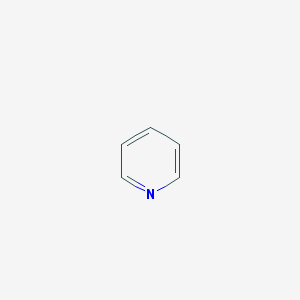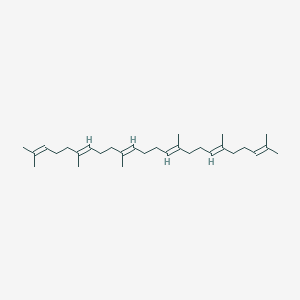NEJM publishes final results of global trial of Remdesivir, showing three important benefits
-
Last Update: 2021-02-25
-
Source: Internet
-
Author: User
Search more information of high quality chemicals, good prices and reliable suppliers, visit
www.echemi.com
with the development of the global epidemic, Redsiway has received sustained attention from the industry and the general public. Earlier, preliminary results of a global clinical trial called ACTT-1 sponsored by the American Institute of Allergy and Infectious Diseases (NIAID) showed that Redsyvir significantly accelerated the recovery time of patients hospitalized with neo-coronavirus disease (COVID-19).On October 8, the final report of the ACTT-1 trial was published in the New England Journal of Medicine (NEJM), helping us to gain a more complete and clear understanding of the effects of the drug on COVID-19 patients.Daniel O'Day, chairman and chief executive officer of Gilead Sciences, said in an open letter that "the final report provides new information and extends the benefits of Redsiway, and each outcome of the study is critical to managing the COVID-19 pandemic and communication decisions between healthcare professionals and patients." Nowreview the test design of ACTT-1. This is an adaptively designed, randomized double-blind placebo-controlled global Phase 3 clinical trial. The trial began on 21 February 2020 and ended on 19 April 2020 in 73 clinical centres in several countries around the world. The patients in the group were adults hospitalized with COVID-19 confirmed by nucleic acid testing, and there was evidence of lower respiratory tract infection. Patients were randomly grouped at 1:1, and the Redsiway group received treatment for up to 10 days, with a first-day dose of 200 mg, followed by 100 mg once a day;In the final report, 1,062 patients were randomly grouped (541 received Redsyve and 521 received a placebo). The final data conveys three important messages:1. Redsyve accelerates patient recovery. Depending on the severity of the condition, the patient's effectiveness in receiving Redsiway treatment also varies.· Overall, the medium recovery time was 10 days for patients in the Redsiway group, 15 days for patients in the placebo group, and 29 percent for patients treated with Redsyve.· In patients with severe illness, the recovery of patients in the Redsiway group accelerated by 31% (medium recovery time of 11 days vs 18 days), which accounted for 90.1% of the total number of trials.· At the time of joining the study, symptoms were assessed as patients who needed hospitalization and low-flow oxygen absorption, and recovery benefited most, with a 45% acceleration.· Patients on early medication recover faster. The recovery of patients treated with redsiway within 10 days of onset accelerated significantly by 37%, while the recovery of patients who were on medication 10 days after onset accelerated by 20% and was not statistically significant.· After taking into account the effects of glucosyl hormones or hydroxychloroquine, Redsyve still showed the efficacy of accelerating patient recovery.2. Redsyve reduces the risk of progression. Patients in the Redsiwe group were 50 percent more likely to see improvement in clinical symptoms on the 15th day, according to an assessment of the eight-type symptom sequence table.3. Throughout the study period, Redsiway showed a trend towards reducing patient mortality.Of all the subjects, the mortality rate was 6.7 per cent on the 15th day, 11.9 per cent in the placebo group, 11.4 per cent on the 29th day and 15.2 per cent in the placebo group. The risk of death in the Redsiway group was reduced by 27% but was not statistically significant.It is worth noting that the risk of death in the Redsyway group was significantly reduced by 70 per cent among patients who needed hospitalization and low-flow oxygen absorption before the trial (and the largest group of patients in the trial, at 40 per cent).In addition, in terms of safety, 131 (24.6%) of the 532 patients treated with Redsyve had severe adverse events and 163 (31.6%) of the 516 patients receiving placebo had serious adverse events."For COVID-19 inpatients, we cannot underestimate the importance of accelerating recovery by 5-7 days," said Daniel O'Day. "Because this will not only reduce the physical challenges that COVID-19 itself poses to patients, but also reduce the risk of secondary infections that patients face as a result of prolonged hospital stays, and will also ease the emotional burden on patients and their families." On the other hand, reducing disease progression "avoids patients entering critical stages of disease exacerbation, as patients have a lower chance of survival once a ventilator is needed." "And these patient benefits will also translate into savings in medical resources." In addition, the question of whether Redsiway can reduce COVID-19 deaths has been answered, providing valuable information for clinical practice. Currently, Redsyve has been approved or authorized for emergency use for COVID-19 treatment in more than 50 countries around the world. The team also noted in the discussion section that the current COVID-19 mortality rate is still high, and it is clear that the use of antiviral drugs alone is not enough to treat all patients. Therefore, studies will continue to assess the effects of the combined use of Redsyve and immunoresposive regulators, such as ACTT-2 and ACTT-3 trials, which are evaluating drugs in the same way as JAK inhibitors baricitinib or interferon β-1a. At the same time, we still need a variety of treatments and a variety of combination drug strategies to continuously improve the prognosis of COVID-19 patients. (Medical New View point) : . John H. Beigel, et al., (2020). Remdesivir for the Treatment of Covid-19 — Final Report. N Engl J Med, DOI: 10.1056/NEJMoa2007764 [2] An Open Letter from Daniel O’Day, Chairman & CEO, Gilead Sciences. Retrieved October 9, 2020, from
This article is an English version of an article which is originally in the Chinese language on echemi.com and is provided for information purposes only.
This website makes no representation or warranty of any kind, either expressed or implied, as to the accuracy, completeness ownership or reliability of
the article or any translations thereof. If you have any concerns or complaints relating to the article, please send an email, providing a detailed
description of the concern or complaint, to
service@echemi.com. A staff member will contact you within 5 working days. Once verified, infringing content
will be removed immediately.







